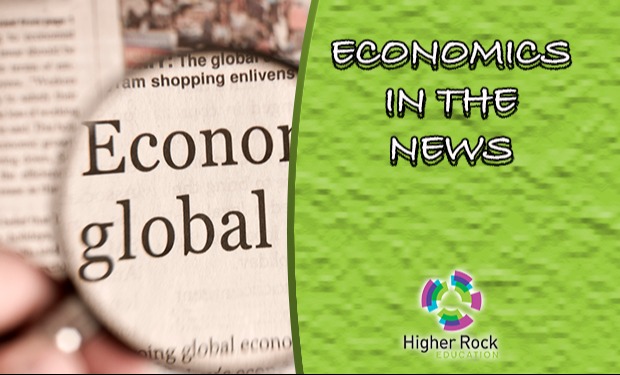
Economics in the News – Sept. 2-8, 2024
Economics impacts our lives every day. Below are some of the top storylines from this past week related to economics.
o Many analysts and economists believe that many of former President Donald Trump’s promises on the campaign trail are unrealistic. Part of Trump’s promises include cutting energy costs in half in a span of a year, as part of a plan to reduce inflation and drive inflation to record lows. Part of Trump’s plan to reduce the cost of living for Americans calls for quick expansion oil and gas drilling and a reduction of government impediments to power plant construction.
Economists and analysts have doubts whether Trump can deliver on his promises, which have not been cited with modeling or economic analysis. Historic experience suggests that presidents have a limited impact on local regulated utility bills or cost of oil. Trump is over-promising what he can deliver, on issues related to pricing and interest rates. [The New York Times]
o Unemployment is still low, but job seekers are competing for fewer openings. A survey from the National Association of Colleges and Employers found that hiring projections for new graduates were below last year’s, with industries such as finance, insurance and real estate all planning to decrease the number of people they hired. Meanwhile, the Bureau of Labor Statistics shows that the pace of hiring in professional and business services is at its lowest level since 2009.
That is a change from recent years, when employers were fighting to keep workers, allowing many workers to obtain big raises or a higher-paying job. Inflation has decreased sharply over the past year due to Fed policy, and with Fed officials signaling a rate cut in the near future, that could ease the burden on businesses and better opportunities for recent graduates. [The New York Times]
o A small number of workers in their 20s and 30s are borrowing years of freedom from their future selves to enjoy some of their retirement savings while still young. The movement is different from the popular FIRE – financial independence, retire early – movement because micro-retirement seekers are looking for short breaks to travel and pursue other passions.
More workers appear to be thinking about breaks in their careers, with 80 percent of recent graduates expressing interest in taking time off to volunteer or for personal projects, according to a survey from Handshake. While taking a break from work can slow the growth of a retirement nest egg, advocates argue that having the chance to travel and pursue other things is worth the cost. Because money in a 401(k) account compounds over time, the impact of a career break can be felt decades later. [The Wall Street Journal]
o Weight-loss drugs are changing the ways that Americans shop. Weight-loss drugs Ozempic and Wegovy are gaining popularity due to their ability to help consumers shed pounds. Experts suggest that one in eight American adults have tried weight-loss drugs, and roughly six percent have a prescription. JP Morgan Research forecasts that by 2030, weight-loss treatments will grow into a $100 billion market serving 30 million Americans.
However, the ramifications are that Americans are starting to downsize, which means buying and changing their habits. Retailers in all categories are contending with how to adapt to a slimmer population. From luxury clothing brands to the grocery store. JP Morgan Research concluded that those who are currently using weight-loss treatments are spending roughly eight percent less on food, including snacks, soft drinks and high-carb products. The medications are helping people feel fuller for longer. [The Washington Post]
o Numerous countries and more than half of the world’s largest corporations have pledged to help reach net-zero carbon emissions by 2050, marking the point that human civilization no longer emits greenhouse gases. But what does that pledge entail from an economic standpoint. The path to net zero is going to be agonizingly difficult, with only 26 years until the target date and understanding the urgency of the net-zero transition.
The cost to achieve net-zero is incredibly expensive – and debatable. A study from the BloombergNEF research group estimates the cost to be $215 trillion. But until the United States and other rich countries get fully on board, it will be difficult to achieve climate goals. [Bloomberg]